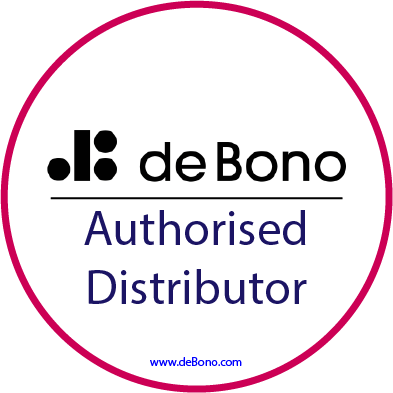 We’ve heard from our clients that no matter what the individual’s role, they will have projects to look after. Large or small, simple or complex, these individuals are often not project management qualified. This is presenting a challenge for organisations around the globe – as project delay or failure is costly in both time and money.
We’ve heard from our clients that no matter what the individual’s role, they will have projects to look after. Large or small, simple or complex, these individuals are often not project management qualified. This is presenting a challenge for organisations around the globe – as project delay or failure is costly in both time and money.
All Project methodologies are based on the cycle THINK, PLAN, DO. Research (and bitter experience) shows ‘THINK’ adds value, followed by ‘PLAN’. ‘DO’ costs time and money. Investing your time in quality thinking will save you time and money in the future.
Whether you are part of a project team or leading a project, we’ve collected the following hints and tips from our most popular workshops to help you THINK about how to add value. These workshops are attended by people managing projects, of any size, who need to stay ‘on time, on budget and on target’.
THINK about the project…
Before you start, make sure you understand what’s expected of you and the project (project scope) and what success looks like (key success factors).
- Have you been given clear instruction and objectives? If not, you’ll need to make sure you get some.
- Have you thought about the basic elements required? Each project is different, most require a clear start and end, an owner or Sponsor, and resources. Taking the time to think about these, and making sure they are in place, will ensure you are prepared and help you if you ever need a work around.
- What practical project management tools and techniques will you need to be successful? The Project Management Survival Guide™ and Agile Project Fundamentals™ workshops ensure everyone involved in projects can be more planned, more organised and reduce risk.
THINK about stakeholders…
Stakeholders are integral to any project. Gaining their buy-in is key to project success. We recommend you think about who your stakeholders are before starting a project.
- Do you know who your stakeholders, inside and outside the organisation, are?
- Have you thought about their interests and expectations and are they likely to promote or resist what you are trying to achieve or change?
- Do you feel confident when dealing with people outside of your team? Our Stakeholder Engagement (including Simulation)™ will help you to develop relationships, build rapport and confidently deal with your stakeholders – saving you time and stress. You’ll create an effective communication plan and develop tools and techniques to improve the way you interact, listen and influence.
THINK about communication…
Communication is key to any project, no matter what size. You know you’ll be expected to speak in meetings and write reports. You might even be caught on-the-spot or need to explain your ideas or something technical to a non-technical stakeholder.Can you put yourself in your listener’s or reader’s shoes and energise your empathy by remembering that a conversation is two way; by understanding others, they will probably want to understand you?
- Can you put yourself in your listener’s or reader’s shoes and energise your empathy by remembering that a conversation is two-way; by understanding others, they will probably want to understand you?
- Have you thought about setting up a report template by finding out what your project sponsor or stakeholders need to read?
- Are you confident when you communicate? We’ve got a range of tangible, easy to use techniques that provide clarity, brevity and impact in all forms of verbal and written communication. Take a look at our communication suite of workshops.
THINK saving time in meetings…
You’ll probably end up initiating or attending a lot of meetings. One of the biggest challenges faced by anyone in business is unproductive meetings. Here are some things you can think about before calling a meeting:
- Do you really need a meeting?
- Does it need to be face-to-face?
- How can you save time and reach consensus? – Edward de Bono’s Six Thinking Hats® is a world renowned thinking and decision-making technique that ensures you don’t spend hours upon hours spent debating issues, with very few positive outcomes or problems solved. This technique will help you to ensure effective idea generation and decision-making through the use of parallel thinking.
THINK about what you need to PLAN and DO…
When you are ready to move on to the PLAN and DO stages of your project, you’ll need to think about specific project management tools and techniques that you might need.
Our Activate suite of workshops provide robust tools and techniques to ensure project teams, managers and sponsors have the skills needed to do more with less, and make it happen.
Indigo Simulations™ is our suite of project and programme focused management simulations that allow you, your team and even your whole organisation to practice your project management skills in a safe, computer-based and facilitated workshop. Discover Indigo Simulations™ at www.indigobusiness.co.uk/simulations.


